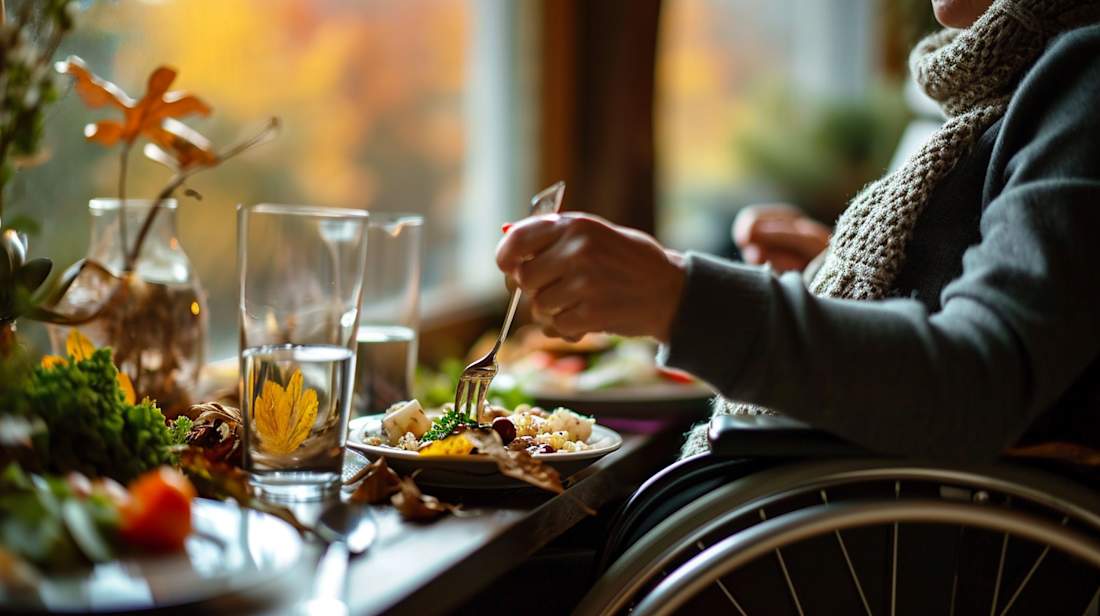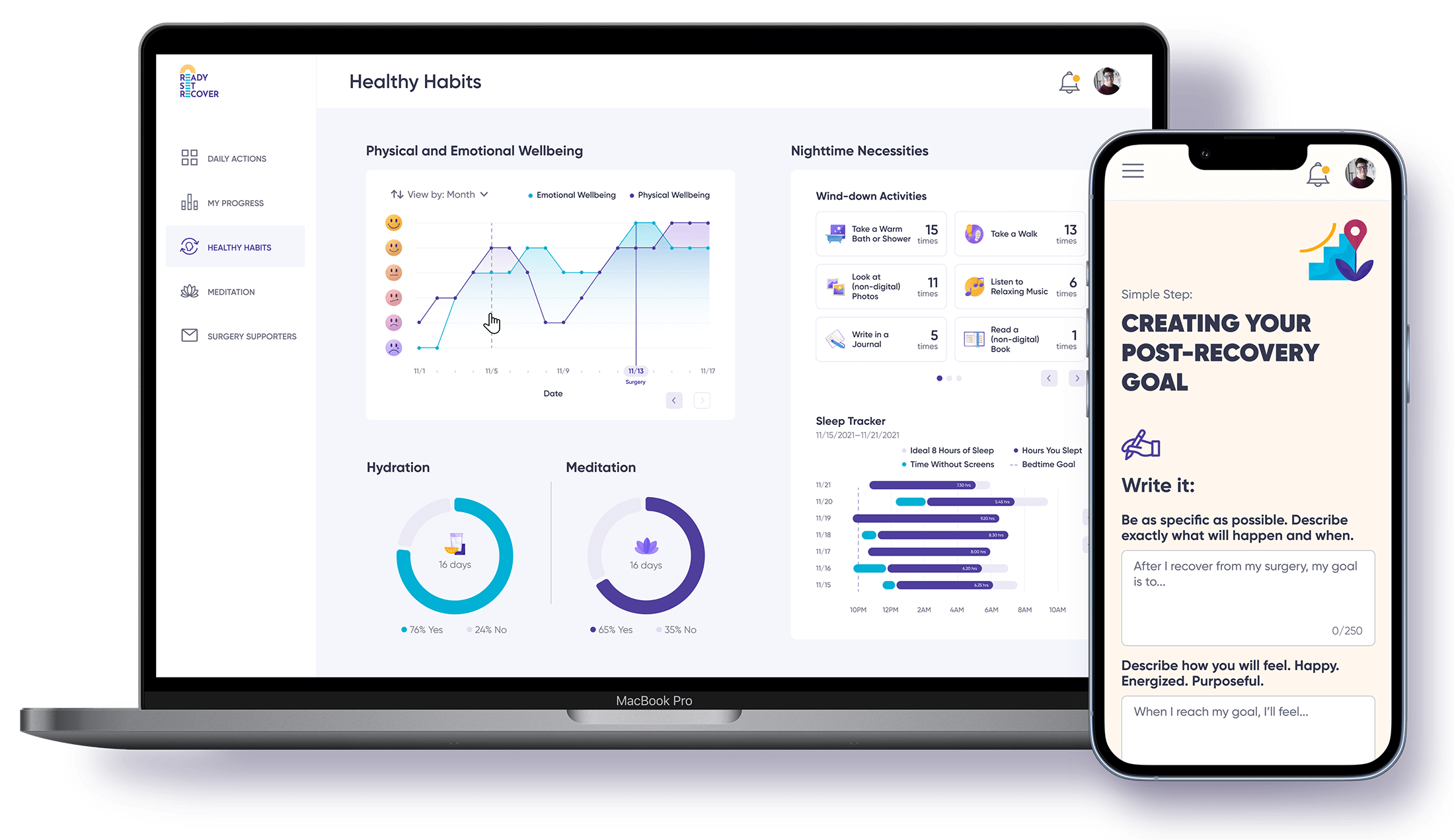Optimal Healing Fare: Nourish Your Body Naturally


Just like a well-tuned engine needs the right kind of fuel to run smoothly, a healing body needs the right kind of nutrition to recover effectively. However, many of us overlook the importance of diet in the post-surgery recovery process. After all, isn’t the hard part over once the surgery is done? Well, not quite! The journey to full recovery begins right after the surgery, and the foods you consume play a pivotal role in this journey.
Understanding what to eat after a surgery can make a world of difference in speeding up the healing process, enhancing your energy levels, and getting you back on your feet. So, let’s embark on this journey to explore the optimal healing fare - a guide on what to eat after surgery for recovery.
Key Takeaways
Fuel your post-surgery recovery with a nutritious diet rich in proteins, healthy fats, vitamins and minerals.
Boost your blood health with leafy green vegetables, Vitamin B12 & Folic Acid for successful recovery.
Avoid processed foods & those high in refined sugar to ensure optimal healing!
What Is Optimal Healing Fare?

Healing isn’t just about rest—it’s about what you put on your plate. Optimal healing fare refers to foods packed with the right vitamins, minerals, and nutrients to help your body recover faster and function better. Whether you’re bouncing back from an illness, surgery, or just daily stress, the right meals can be your best medicine.
Recovery begins on your plate. Proteins, healthy fats, vitamins, and minerals contribute to a robust post-surgery diet. These nutrients do more than satiate your hunger, they play a significant role in wound healing and the reconstruction of collagen and soft tissue. Knowledge of what to eat and what to avoid is equally significant. Processed foods, high in sugar and saturated fat but low in fiber, can hinder your recovery. We will further examine these nutritional pillars of post-surgery diet.
Prioritizing Protein
If proteins were a superhero, their superpower would be the ability to repair and rebuild. Proteins serve as the body’s building blocks. They're instrumental in repairing muscles damaged during surgery, accelerating wound healing, and rebuilding muscle tissue.
But not all proteins are created equal. The type of protein matters. Some beneficial sources of protein include:
Lean meats like fish and poultry
Beans
Tofu
Greek yogurt
These sources of healthy foods are particularly beneficial as they provide a healthy dose of important nutrients and are easy on your digestive system.
If you’re looking for snack options that are rich in protein, nuts, and seeds are your best bet as foods to eat. They're easy to eat, packed with nutrients, and great for those mid-meal hunger pangs.
The Role of Fiber

While fiber may not have the glamour of proteins or the popularity of vitamins, it plays a silent yet significant role in your recovery. Fiber helps maintain a healthy digestive system by preventing constipation, a common occurrence after surgery.
Some fiber-rich foods that can help support your recovery process include:
Whole wheat bread
Brown rice
Buckwheat
Oatmeal
Quinoa
Not a fan of whole grains? Don't worry! There’s a whole world of high-fiber foods out there. From fresh fruits and vegetables to legumes, nuts and high-fiber cereals, there are plenty of delicious ways to get your daily dose of fiber. And if you still find it challenging to meet your fiber needs, you can consider taking a fiber supplement, just remember that whole foods still provide the most nutritional benefits.
Importance of Vitamins and Minerals

Vitamins and minerals are essential to the recovery process after surgery. They play a significant role in helping the body heal and recover, providing the necessary nutrients for optimal healing.
Each vitamin and mineral plays a unique role in recovery. Here are some examples and the foods that are rich in them:
Vitamin B is essential for creating red blood cells and ensuring your brain is functioning optimally, helping you make a speedy recovery. Foods rich in Vitamin B include whole grains, beans, peas, lentils, meat, eggs, and dairy products.
Vitamin K plays a crucial role in blood clotting, which is absolutely essential for successful wound healing after surgery. Foods high in Vitamin K include leafy green vegetables like spinach and kale, broccoli, and Brussels sprouts.
Vitamin C contributes to the overall health and well-being of the body, supporting various functions. Foods high in Vitamin C include oranges, strawberries, bell peppers, and broccoli.
Vitamin E can help the body produce healthy red blood cells and utilize vitamin K for a successful recovery. Foods rich in Vitamin E include nuts and seeds, spinach, and broccoli.
Hydration is Key

Have you ever been told by someone to drink a lot of water? That advice was correct! Staying well-hydrated is essential after surgery to support the body’s wound healing process.
Water is the unsung hero of your post-surgery recovery. It aids in the transportation of nutrients to the wound site and helps in the removal of debris. Additionally, hydration status affects blood volume, circulation, and skin turgor (tension), all of which are essential for successful wound healing. Lastly, it helps flush the anesthesia, which can remain in the body for weeks, out of your system. So keep a glass nearby whenever possible and drink more than you might normally because it's essential to stay hydrated to promote the healing process.
Strategic Eating for Energy Levels
If you’ve always thought of carbohydrates as the enemy, it’s time to reconsider. Carbohydrates offer the energy required for muscles, brain, and nerves to heal effectively.
But not all carbohydrates are the same. The kind of carbohydrates you consume matters. Whole grains, carrots, and sweet potatoes are all excellent choices for you. And don't forget about fats. Healthy fats can help fuel your body and keep your blood sugar levels stable for a successful recovery.
We'll delve into smart carbohydrate choices and the role of healthy fats in the upcoming sections.
Smart Carbohydrate Choices
Carbohydrates are your allies in your road to recovery. They:
Give your brain the energy it needs
Help prevent muscle breakdown
Support your metabolism during the catabolic phase, which helps your wounds heal properly.
But the trick is to choose slow-releasing carbohydrates. Foods like:
Legumes such as:
Lentils
White Beans
Black Beans
Chickpeas
Pinto Beans
Red Kidney Beans
Peanuts
Green Peas
Red Kidney Beans
Nuts
Quinoa
Vegetables
Brown rice
are excellent sources of slow-releasing carbohydrates. These provide a more sustained and long-lasting energy supply compared to simple carbohydrates, which are quickly digested and can cause spikes in blood sugar levels. Simple carbohydrates, also known as simple sugars, are made up of one or two sugar molecules. They're found in foods like white bread, pastries, soda, and candy. While these foods can provide a quick burst of energy, they lack the vitamins, minerals, and fiber found in complex carbohydrates. Therefore, they're not the ideal choice for sustained energy and recovery after surgery..
Adding Healthy Fats

Fats have been demonized for far too long. It’s time to put the misconceptions to rest and embrace healthy fats for what they are - a crucial part of your post-surgery diet. Incorporating healthy fats into your diet after surgery can aid in the absorption of vitamins, bolster your immune system, and reduce the risk of infection.
Some great choices for getting your daily dose of healthy fats are:
Almonds
Pistachios
Walnuts
Pepitas (pumpkin seeds)
Sunflower seeds
During post-surgery recovery, the body can benefit from healthy fats by breaking them down along with protein and glycogen to provide energy for the healing process.
Foods That Fight Inflammation
Inflammation is typical after surgery. Although it’s a natural response to injury, too much inflammation can hinder healing. Therefore, consuming foods that help minimize inflammation can considerably aid your recovery.
Some excellent choices to help you reduce inflammation and feel better include:
Tomatoes
Olive oil
Green leafy vegetables (such as spinach, kale, and collards)
Nuts (like almonds and walnuts)
Fatty fish
Berries
Broccoli
Avocados
Green tea
Peppers
Mushrooms
Grapes
Oatmeal
Spices like turmeric can also be incorporated into your diet for their potential benefits in reducing pain and inflammation, aiding in digestion, and promoting healing.
Rebuilding with Amino Acids
Amino acids are the essential building blocks of proteins and are absolutely vital for the body. They're involved in almost every single body process, including:
Growth and development
Healing and repair
Normal digestion
Providing energy
Consuming essential amino acids shortly after surgery has been proven to help with recovery and healing. Amino acid supplementation can help reduce muscle breakdown and promote muscle repair and growth - giving you a head start on your recovery journey. Great sources of amino acids include:
Meat
Tofu
Eggs
Quinoa
Poultry
Boosting Blood Health
Blood health is a critical aspect of your recovery process. After all, blood is what carries the essential nutrients to the wound site and removes the waste products. Iron plays an essential role in the production of new red blood cells, making it an invaluable resource for post-surgery recovery.
Leafy green vegetables like kale, spinach, arugula, mustard greens, and Swiss chard are packed with iron and can be a great addition to your post-surgery recovery plan. Vitamins like B12 and folic acid are also critical for blood health. B12 supports red blood cell formation and promotes healing after surgery.
Folic acid enhances hemoglobin levels and promotes the creation of healthy red blood cells.
Gentle Options for Sensitive Systems
A sensitive digestive system after surgery is a common issue, but it doesn’t mean you should compromise your nutrition. Consuming easily digestible post surgery foods like:
smoothies
lean proteins
soups
broths
fresh fruits
vegetables
whole-grain bread
pasta
brown rice
legumes
both cold and hot cereal
can improve your comfort.
Liquid meals offer several advantages for sensitive digestive systems after surgery:
They're easier to digest
They put less pressure on the digestive system
They can be quickly absorbed by the body
They help maintain hydration levels during the recovery period
For those looking for meal ideas that are both gentle and nourishing, our list of healthy recipes includes smoothies, soups, and simple meals that are ideal during the early recovery phase.
Avoiding Setbacks: Foods to Steer Clear Of
While focusing on beneficial foods for recovery, it’s equally important to know which foods to avoid. Some foods may hinder your recovery or even provoke complications. Processed foods such as fast food, chips, and fries should be avoided to maintain a healthy post-surgery diet.
Fruit punch, French fries, chicken nuggets, onion rings, fish sticks, and breakfast sausage are all great examples of processed foods that you should stay away from after surgery to ensure optimal healing. Foods high in refined sugar such as cakes, cookies, chocolate, sweetened drinks, and soft drinks should be limited as well to ensure you stay on the path to recovery.
Adapting Meals to Appetite Changes
Appetite changes are common after surgery. But there are strategies you can use to adjust your meals according to these changes. Here are some tips:
Eat several smaller meals throughout the day instead of three big ones.
Focus on nutrient-dense foods.
Stay hydrated.
Listen to your body’s hunger and fullness cues.
These strategies can help you navigate appetite changes after surgery.
Some strategies to increase calorie intake in small meals for patients with reduced appetite after surgery include:
Eating the highest-calorie food on your plate first, including nutrient-rich drinks or shakes
Adding healthy snacks throughout the day such as nut butter and crackers, fruits, or trail mix
Gradually increasing the size of your meals as your appetite improves
These strategies can help ensure that you're getting enough calories and nutrients during your recovery period.
Tailoring Your Diet to the Type of Surgery
While the basic guidelines for a healthy diet remain consistent, specifics can vary based on the type of surgery. It’s important to seek personalized dietary advice from a healthcare professional.
For instance, patients after cardiac surgery are advised to consume fresh, whole foods such as fruits, vegetables, whole grains, lean meats (including fish), and low-fat dairy products and to limit salt intake to less than 5 grams per day to ensure a speedy recovery.
On the other hand, after bariatric surgery, you should modify your diet gradually, starting with a low-sugar clear liquid diet and then introducing soft fruits and vegetables, as well as some grains, and then resuming a regular diet after several weeks.
Embrace Optimal Healing Fare for a Stronger You
Navigating the road to recovery after surgery can be a challenge. But with the right food choices, you can expedite the healing process, boost your energy levels, and get back on your feet faster. From prioritizing proteins, fiber, vitamins, and minerals to staying hydrated, adding healthy fats, and choosing foods that fight inflammation, every food choice you make can significantly impact your recovery.
Remember, the journey to recovery is not a sprint, it's a marathon. It requires patience, persistence, and the right nutrition. So, listen to your body, choose foods that nourish and heal, stay away from foods that hinder your recovery, and most importantly, consult with your medical team to tailor your diet to your specific needs. Here’s to a speedy recovery!
If you'd like to further optimize your recovery, Ready Set Recover, is a terrific resource that goes beyond just nutrition. The platform offers a physician vetted, scientifically proven wellness program that holistically explores many aspects of preparing for surgery to achieve optimal results. It provides comprehensive guidance that encompasses physical, mental, and emotional preparation to ensure you're in the best shape possible before your surgery. This includes everything from exercise routines and mindfulness techniques to personal care tips and community support. The program is designed with the understanding that successful recovery is not just about the surgery itself, but also about the preparation and aftercare. By integrating these elements, Ready Set Recover aims to foster a smoother, faster, and more comfortable recovery journey for patients.
Related Articles:
Frequently Asked Questions
What is the best food to eat right after surgery?
To restore energy levels and avoid constipation, eating high-fiber foods like whole grains, fruits and veggies, beans and legumes is the best food to eat right after surgery.
What not to eat after surgery?
It's best to avoid alcohol, processed foods, caffeine and foods high in sugar after surgery for a successful recovery.
What helps your body heal faster after surgery?
Eating a diet rich in protein, Vitamin C and zinc can help support the healing process after surgery, so make sure you get plenty of these nutrients to aid in the recovery process.
Why is nutrition so important after surgery?
Good nutrition is critical for your recovery after surgery, because it can reduce the risk of infection, speed up the healing process, and give you the strength and energy you need to get back on your feet.
What role does hydration play in recovery?
Staying hydrated is key for recovery because it helps the body's wound healing process. Adequate hydration can also reduce post-operative fatigue and decrease muscle cramping.
How do you create an optimal healing environment?
An optimal healing environment includes reducing stress, getting proper nutrition, staying hydrated, maintaining a clean and supportive space, and having emotional or social support. It also involves following medical guidance and engaging in self-care practices.






